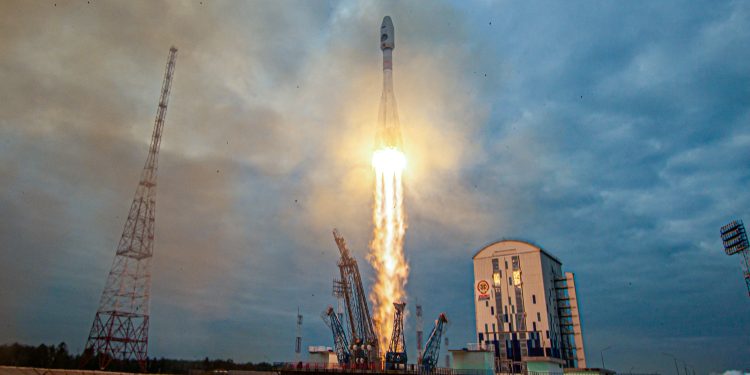In a surprising turn of events, Russia’s space agency, Roskosmos, has announced the unexpected crash of its highly anticipated Luna-25 spacecraft into the moon’s surface. The mission that held the promise of advancing lunar exploration encountered a heartbreaking setback, leaving scientists and space enthusiasts around the world in awe and disbelief.
The Luna-25 spacecraft had embarked on its mission with great ambitions, aiming to achieve a soft landing on the moon’s surface. However, this aspiration was abruptly shattered when contact with the unmanned robot lander was lost at precisely 11:57am GMT on a fateful Saturday.
It was later disclosed by Roskosmos that the spacecraft had spiralled into an uncontrolled orbit before meeting its untimely end. The tragic crash, which was initially scheduled for a gentle touch-down on the lunar terrain, was an unforeseen turn of events that caught both the space agency and the global audience off-guard.
The lunar expedition had marked Russia’s momentous return to deep space exploration, breaking a 47-year hiatus since its last mission in 1976 during the Soviet Union era. The incident comes hot on the heels of an unsettling report from Roskosmos about an “abnormal situation” that its team of experts was diligently investigating.
The agency’s official Telegram post confirmed that during the operation, a technical anomaly disrupted the craft’s ability to execute manoeuvres as planned. This twist of fate led to the catastrophic crash that has left the global space community in a state of reflection and re-evaluation.
Commenting on the unfortunate event, Dmitry Rogozin, the head of Roskosmos, expressed the agency’s disappointment, saying, “The loss of Luna-25 is a setback for our lunar exploration efforts, but we remain committed to unlocking the mysteries of our celestial neighbor.”
The mission’s unexpected outcome underscores the complex challenges and uncertainties that come with space exploration, highlighting the intricacies of venturing into the cosmos.
Looking ahead, this incident is likely to prompt a comprehensive review of both technological and operational aspects of lunar missions, especially as the race for lunar exploration gains momentum.
Experts suggest that while the crash is undoubtedly a setback, it could lead to refinements and innovations in future lunar endeavours. The scientific community’s fascination with the moon’s south pole, with its potential for water and future resource utilization, remains unwavering.
Despite the Luna-25 mission’s tragic end, it is important to remember that space exploration is a journey marked by perseverance, innovation, and occasionally, unforeseen challenges.
As nations across the globe continue to push the boundaries of human knowledge and exploration, setbacks like these will undoubtedly serve as stepping stones to new horizons and discoveries that await in the vast expanse of the cosmos.












